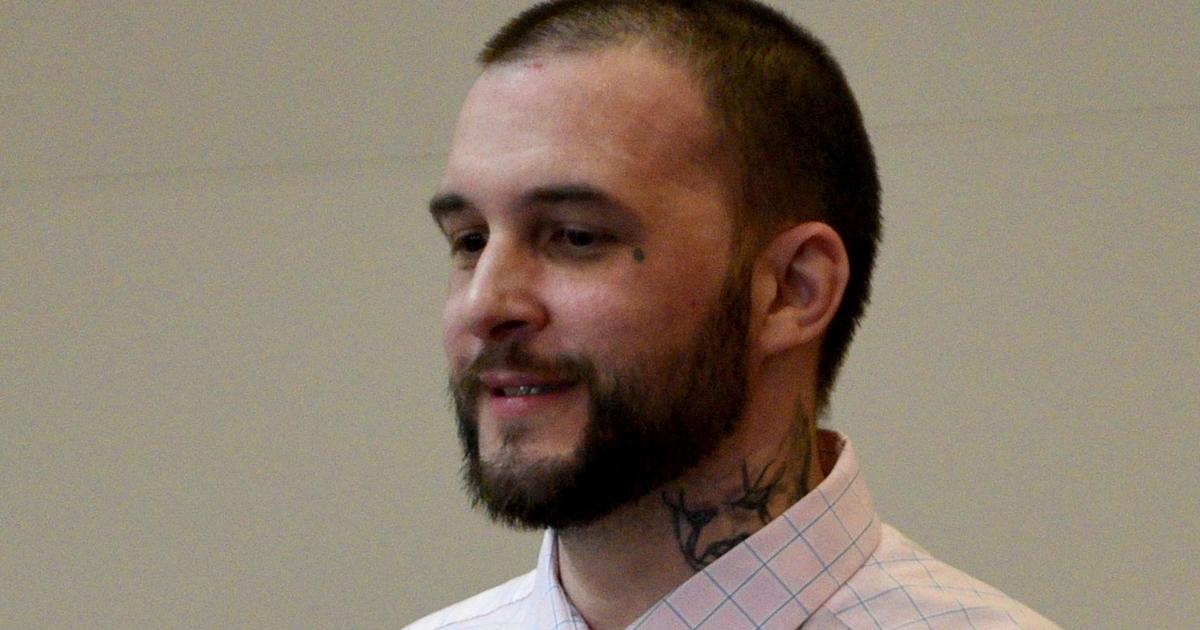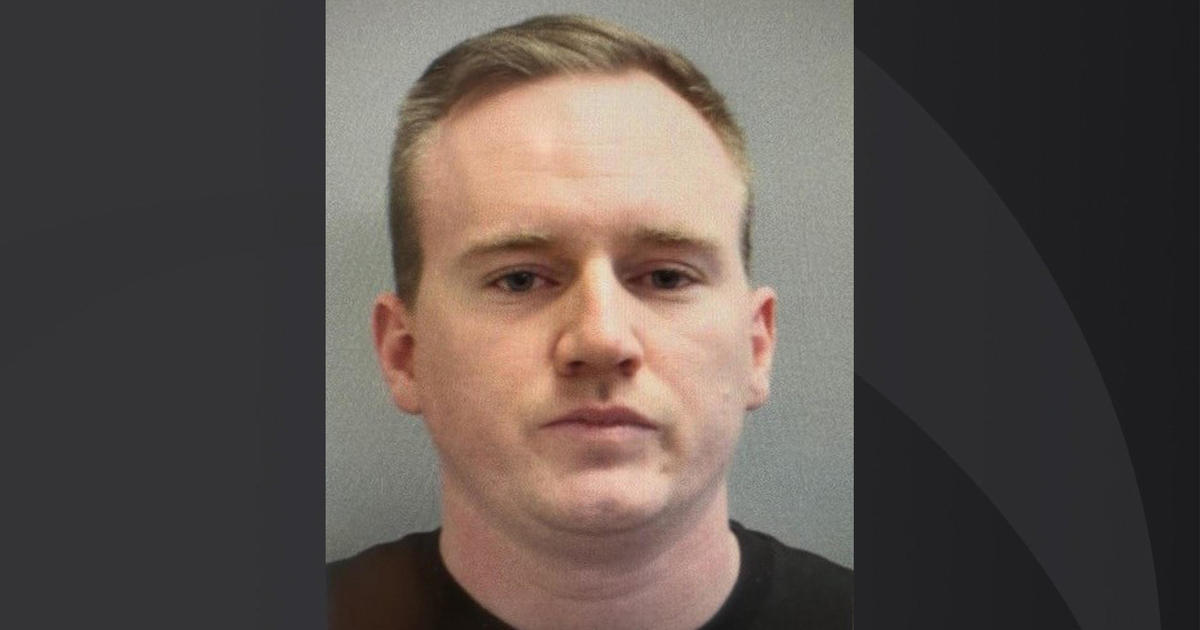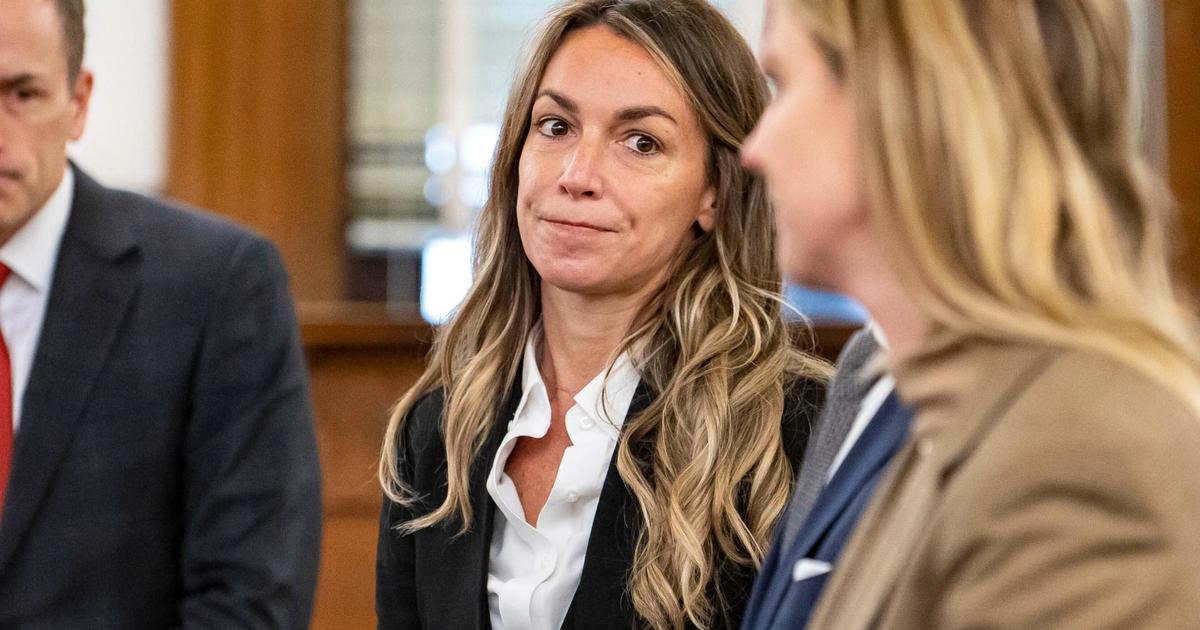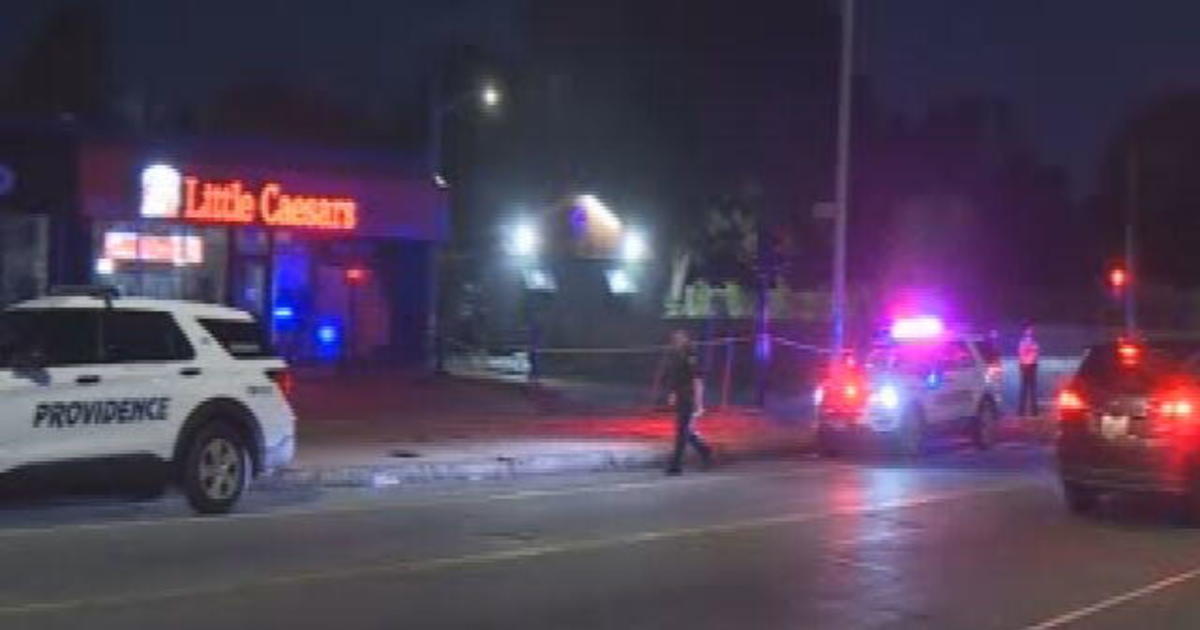NH Home Invasion Machete Murder Suspect Seeks To Reverse Conviction
CONCORD, N.H. (AP) — A New Hampshire man seeking to reverse his conviction for the murder of a woman hacked to death with a machete and knife in her home will have his case argued next month before the state Supreme Court.
Christopher Gribble of Brookline is serving a life sentence without possibility of parole for killing 42-year-old Kimberly Cates and maiming her 11-year-old daughter in their Mont Vernon home in 2009. He and Steven Spader were convicted of wielding a machete and a knife during the attacks.
Gribble was convicted in March 2011, after a jury rejected his defense of insanity.
On appeal, he claims the trial should have been moved to a different county because of the sensational publicity preceding his trial. He is also challenging the judge's instructions on insanity and the admission of his confession.
Attorney Stephanie Hausman, who represents Gribble, says her client's trial should have been moved because it followed so closely on the heels of Spader's trial.
"Reports of the Spader trial graphically described the crimes and the victims' injuries, often using inflammatory language," Hausman wrote, saying words like savage, vicious and horrific were often invoked.
She also cited articles written about the insanity defense that quoted lawyers' skepticism of it succeeding in Gribble's case.
"Because of the overwhelming media coverage and intensely antagonistic community sentiment, Gribble did not have a fair determination of his sanity and criminal responsibility for these crimes in Hillsborough County," Hausman wrote.
Gribble is also challenging the instruction Superior Court Judge Gillian Abramson gave on insanity, saying it was weighted toward the state's case.
Gribble's lawyers asked the judge during the trial to give an instruction that did include factors for jurors to consider. Abramson denied that request and gave instructions that included examples — in one instance, telling jurors, "You may also consider whether the defendant acted impulsively or acted with cunning and planning in executing his crimes and escaping without detection."
Hausman said in her brief that the Supreme Court should reverse because Abramson's instructions improperly influenced jurors.
She also challenged admission of Gribble's detailed confession, which he gave after saying he didn't want to talk anymore and then, an hour later, reinitiating a discussion with state police. Hausman claims state police "did not scrupulously honor" Gribble's decision to halt the interview as case law requires.
State prosecutors counter in their brief that Gribble, an hour after saying he didn't want to talk anymore, motioned the sergeant back into the room and talked to him about his job for a while before stating, "I'll tell you everything."
Prosecutors also argue that Abramson was right to refuse to move the trial, noting that Gribble admitted his guilt and was waging an insanity defense.
Gribble's lawyer argues that the speed with which the jury returned a verdict — in about two hours — is indicative that jurors were influenced by the media and community sentiment. Prosecutors in their brief chalk it up to Gribble's own emotionless but graphic testimony about how he planned and executed the crimes and hid THE evidence.
Prosecutors defended the jury instructions, saying Abramson gave "the standard jury instruction on insanity" that the Supreme Court has repeatedly upheld.
Gribble was also convicted of attempted murder, conspiracy to commit murder, conspiracy to commit burglary and witness tampering.
The Supreme Court is scheduled to hear arguments in the case Nov. 8.
Copyright 2012 The Associated Press.



